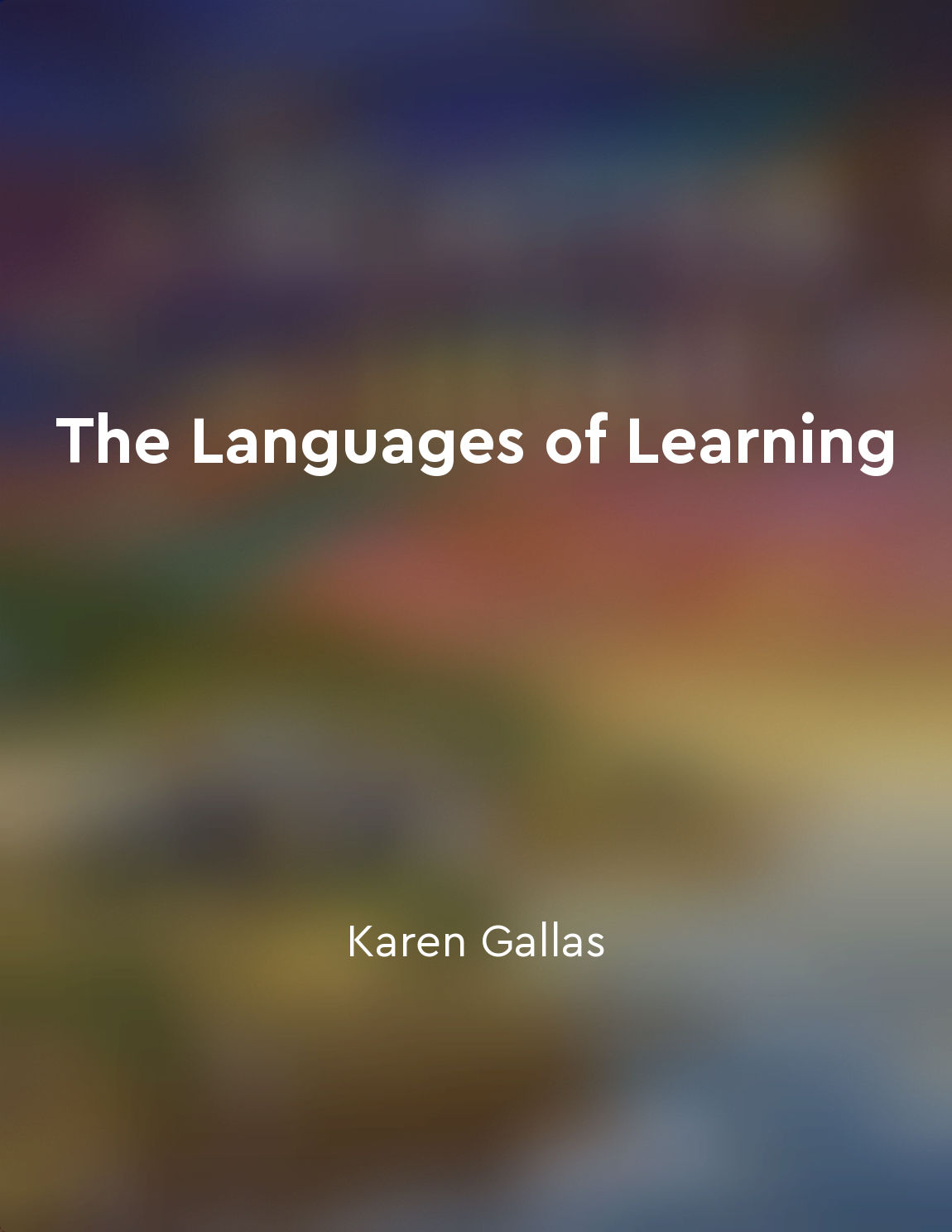Teachers must provide opportunities for children to express themselves in their preferred languages from "summary" of The Languages of Learning by Karen Gallas
In our classrooms, it is crucial for educators to create an environment where children feel comfortable expressing themselves in the languages that are most familiar and natural to them. This includes not only the languages spoken at home, but also any other forms of communication that children may use to convey their thoughts, feelings, and ideas. By providing opportunities for children to use their preferred languages, teachers can help to validate and honor the diverse linguistic backgrounds of their students. When children are able to express themselves in their preferred languages, they are more likely to feel a sense of belonging and connection to the learning environment. This can have a positive impact on their overall well-being and engagement in the classroom. Additionally, when children are encouraged to use their preferred languages, they are able to fully communicate their thoughts and ideas, which can lead to deeper understanding and more meaningful interactions with their peers and teachers. It is important for educators to recognize that language is not just a means of communication, but also a reflection of one's identity and cultural background. By supporting children in using their preferred languages, teachers can help to foster a sense of pride and ownership in their linguistic heritage. This can contribute to a more inclusive and equitable learning environment where all students feel valued and respected for who they are. Furthermore, providing opportunities for children to express themselves in their preferred languages can help to bridge the gap between home and school. When children are able to share their experiences and perspectives in the languages they are most comfortable with, it can create a stronger connection between their home life and their educational experiences. This can lead to increased family engagement and support for learning, as well as a greater sense of continuity and coherence in children's overall development.- By creating a classroom environment that values and celebrates the diverse languages of its students, teachers can help to empower children to fully express themselves and engage in meaningful learning experiences. This approach not only supports children's linguistic development, but also promotes a sense of belonging, cultural pride, and connection to their educational journey. Ultimately, by honoring and embracing the languages of our students, we can create a more inclusive and enriching learning environment for all.


